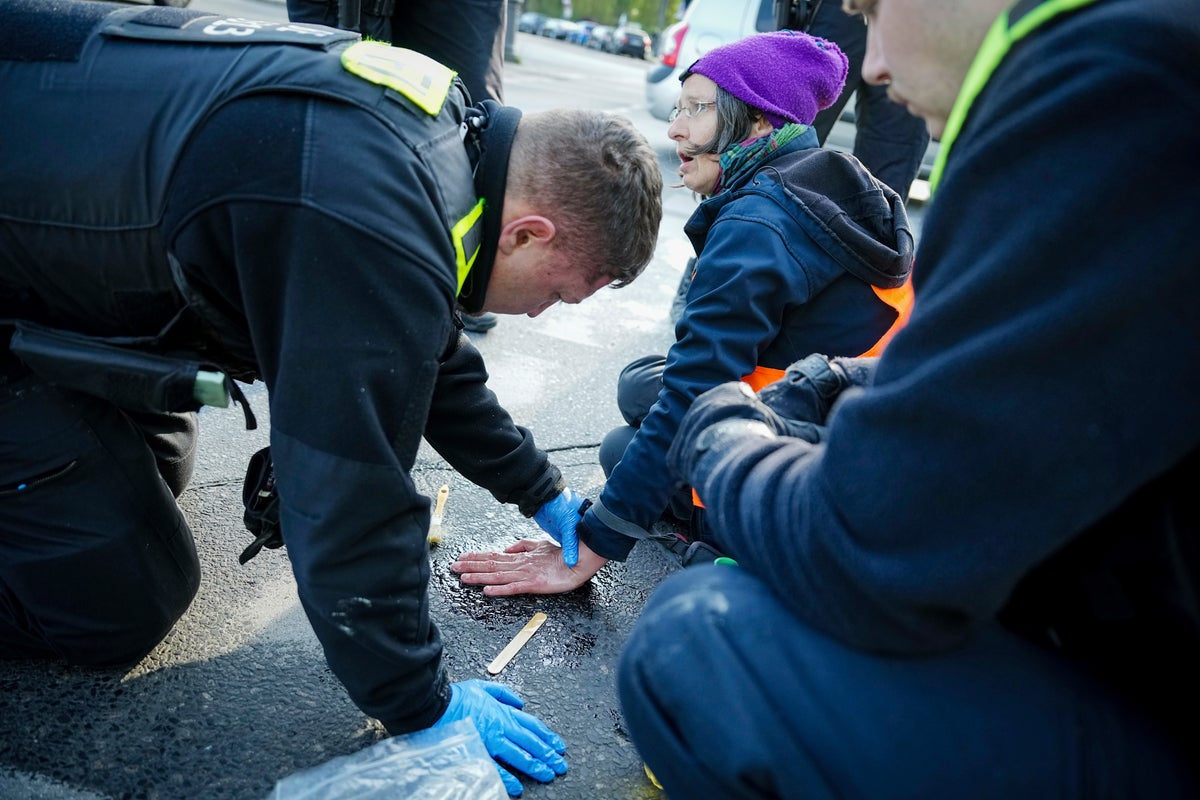
Climate activists staged a 10th straight day of protests in Berlin, blocking key roads during rush hour and bringing parts of the German capital to a standstill on Friday.
Members of the group Last Generation glued themselves to the road, causing long traffic jams for commuters driving into the city. The group wants to draw attention to the threat of global warming and the need for governments to step up measures to curb greenhouse gas emissions.
At a crossing in the north of the capital, many drivers waited patiently for police to clear the road, though some hurled abuse at the activists, calling them “terrorists” and “scum.” Several pedestrians applauded the protesters, giving them a thumbs-up, while one passer-by offered them food and water.
Last Generation has acknowledged that its protests are provocative, but it argues that by stirring friction it can encourage debate within society about climate change.
“Sure, there are those who insult or criticize us,” activist Theodor Schnarr said. "But I've got the feeling that more and more people are coming to us on the streets and saying they think this is a good thing."
Schnarr said the group believes disruptive but peaceful protests are justified due to the enormity of the climate crisis and the urgent need to tackle it.
“We have all the solutions. The German government just needs to implement them,” he said.
But Frank Silzle, a motorist who was inconvenienced by Friday's blockade, said that while he agreed with the group's aims, he objected to its tactics.
“Ultimately I think it's counterproductive, what they're doing,” Silzle said. “I understand their cause completely, but the way they're going about it is sadly causing a counter-reaction within the population that is very, very harmful to the cause.”
Some German politicians have called for tougher police measures and sentences against the activists. So far, most courts have either acquitted activists or issued them fines, though three Last Generation members recently received prison sentences ranging from three to five months in southern Germany.
The group plans to meet with Germany's transportation minister next week to discuss its demands. They include the introduction of a universal speed limit on German highways, a move that experts say would be a quick and cheap measures to cut emissions.







